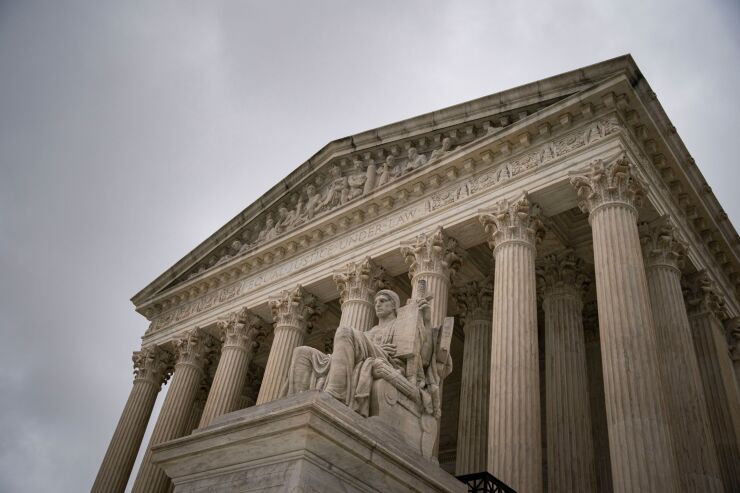
For the second time this year, banking trade groups have taken the Federal Reserve's side in pending litigation.
The Bank Policy Institute and The Clearing House filed a joint motion on Wednesday to intervene on the Fed's behalf in its ongoing
Regulation II is the Fed's implementation of the so-called Durbin Amendment to the Dodd-Frank Act of 2010, which
Last month, BPI and TCH
In their filing, the groups argue that Corner Post's interpretation of the amendment is incorrect and would have significant negative impacts on card-issuing banks.
"Any rule promulgated under [Corner Post's] erroneous reading of the Durbin Amendment would ignore substantial and verifiable costs incurred by [BPI's and TCH's] members in providing for and processing debit card transactions in contravention of the amendment," the groups wrote, adding that they have "an obvious, direct interest in the result of such a challenge."
The groups also argued that because they are uniquely capable of defending their own interests on this matter, the issue should not be left up to the Fed board of governors alone to make the case in favor of Regulation II.
"The Board, as a governmental entity, is tasked with the broad responsibility of executing the Durbin Amendment's goals and is subject to potential shifts in policy — both of which make it impossible for the Board to adequately represent [card issuers'] narrow, direct interest in the outcome of this litigation," the trade groups noted. "[We] are uniquely situated to defend their financial interests against Plaintiff's challenge to the long-settled Regulation II."
The Corner Post case has
So, even though Regulation II has been on the books for more than a decade, Corner Post is still able to file an APA challenge because the gas station did not open until 2018.
Merchant groups first challenged Regulation II in 2011, ultimately reaching the U.S. Court of Appeals for the D.C. Circuit in 2015. But the court ruled against them, finding that the terms of the regulation fell within the bounds of the Fed's discretion. The Supreme Court opted not to take up the appeal.
In 2021, a pair of North Dakota retail associations challenged the regulation again. Corner Post joined that suit as a standalone plaintiff. The challenge was dismissed at both the U.S. district and appellate levels, with both courts ruling that the claims began accruing at the time the rule was enacted, meaning the statute of limitations had long been reached.
In July, the Supreme Court reversed that decision, finding that Corner Post's statute of limitations had not been reached. It remanded the case back to the appellate level.
The case could continue to have ramifications beyond the banking sector. A ruling in favor of Corner Post would not only force the Fed to go back to the drawing board for its interchange regulation, but would also demonstrate how courts are viewing agency discretion after the






